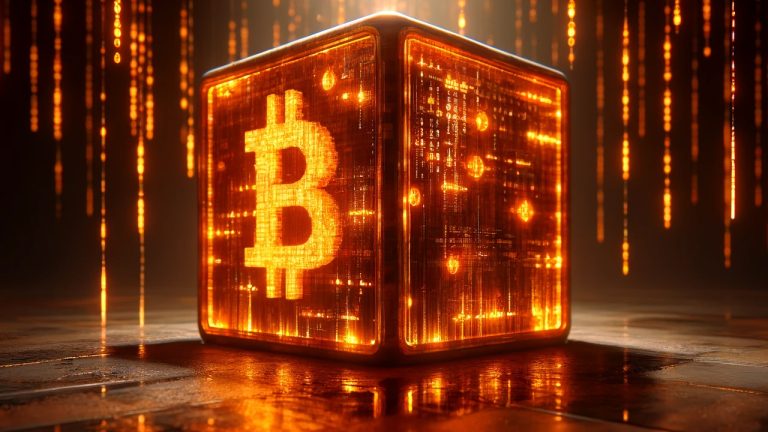 On May 3, the Bitcoin network validated its largest block to date at block height 841,886, which included an inscription showcasing the technology stack dubbed Logos’ manifesto. This block, similar to the one that previously held the record as the largest, was mined by Marathon. Record-Setting 841,886 Bitcoin Block Mined, Outpacing Previous Milestone Marathon has […]
On May 3, the Bitcoin network validated its largest block to date at block height 841,886, which included an inscription showcasing the technology stack dubbed Logos’ manifesto. This block, similar to the one that previously held the record as the largest, was mined by Marathon. Record-Setting 841,886 Bitcoin Block Mined, Outpacing Previous Milestone Marathon has […]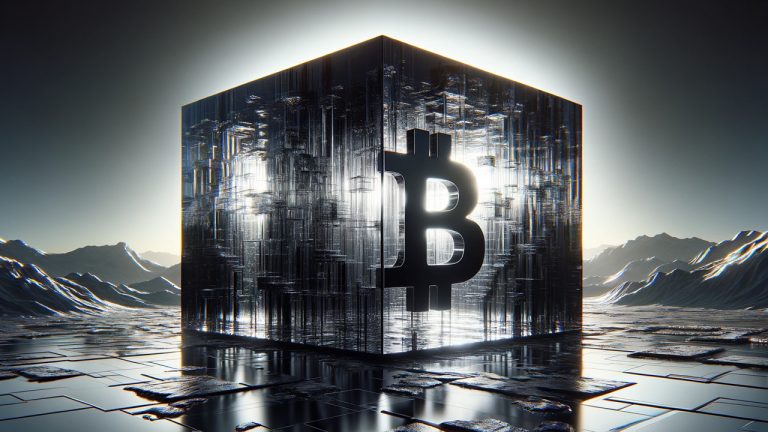 During bitcoin’s extraordinary price peaks in March, this week saw the mining of the biggest block by byte size, with Marathon’s mining pool producing a 3.99 megabyte (MB) block. This block, labeled as 832,849, carried a message linked to the Runestone airdrop. Bitcoin Blockchain Witnesses Unprecedented 4 MB Block Over the recent weekend, Marathon, a […]
During bitcoin’s extraordinary price peaks in March, this week saw the mining of the biggest block by byte size, with Marathon’s mining pool producing a 3.99 megabyte (MB) block. This block, labeled as 832,849, carried a message linked to the Runestone airdrop. Bitcoin Blockchain Witnesses Unprecedented 4 MB Block Over the recent weekend, Marathon, a […]

Block size and scalability trade-off involves optimizing transaction capacity while ensuring network performance amid increasing demand.
Block size is important for maximizing storage efficiency and transaction throughput in file systems and blockchain contexts.
The amount of data processed or transferred in a single block within a computer system or storage device is referred to as the block size. It represents the basic unit of data storage and retrieval in the context of file systems and storage.
 After the Twitter logo was changed from the original blue bird to a cartoon image of the famous Shiba Inu Doge, the cryptocurrency dogecoin rose significantly in value and is now up 27% more than 12 hours later. However, a number of bitcoin proponents expressed distaste for the logo change, and a few insisted that […]
After the Twitter logo was changed from the original blue bird to a cartoon image of the famous Shiba Inu Doge, the cryptocurrency dogecoin rose significantly in value and is now up 27% more than 12 hours later. However, a number of bitcoin proponents expressed distaste for the logo change, and a few insisted that […]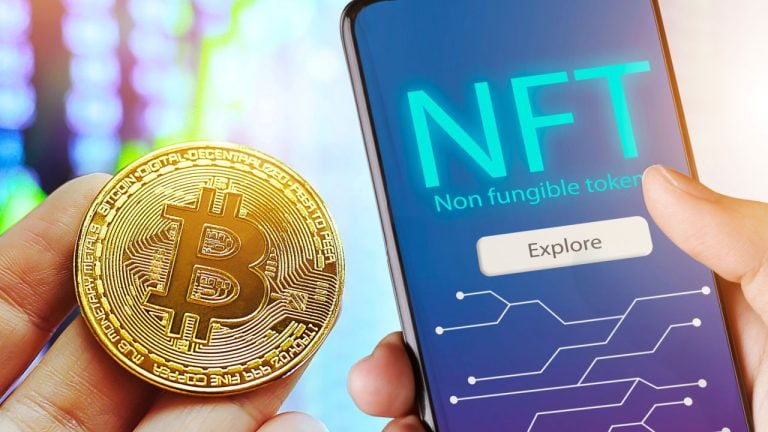 In spite of turbulence in traditional global finance, with BRICS nations said to be pushing for de-dollarization and major banks like Bank of America and Goldman Sachs predicting further interest rate hikes from the U.S. Federal Reserve, creativity in crypto has found a new boon in the form of controversial inscriptions, called Ordinals, on the […]
In spite of turbulence in traditional global finance, with BRICS nations said to be pushing for de-dollarization and major banks like Bank of America and Goldman Sachs predicting further interest rate hikes from the U.S. Federal Reserve, creativity in crypto has found a new boon in the form of controversial inscriptions, called Ordinals, on the […]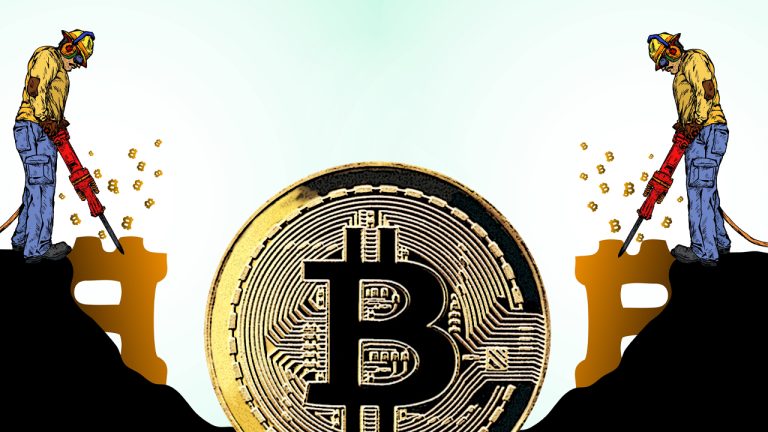 As Ordinal inscriptions approach the 150,000 mark, blocks larger than 3 MB have become commonplace, with many blocks near the 4 MB range. Meanwhile, after the average transaction fee on-chain rose 122% higher at the beginning of February 2023, the average fee has remained the same over the last few weeks and is currently coasting […]
As Ordinal inscriptions approach the 150,000 mark, blocks larger than 3 MB have become commonplace, with many blocks near the 4 MB range. Meanwhile, after the average transaction fee on-chain rose 122% higher at the beginning of February 2023, the average fee has remained the same over the last few weeks and is currently coasting […] Since Luxor, a bitcoin mining pool, mined a record-setting 3.96 MB block (#774,628) on the Bitcoin blockchain, block sizes have been larger than they were prior to that block height in the past 12 days. Statistics show that blocks larger than 3 MB are now quite common, and demand for Ordinal inscriptions has risen as […]
Since Luxor, a bitcoin mining pool, mined a record-setting 3.96 MB block (#774,628) on the Bitcoin blockchain, block sizes have been larger than they were prior to that block height in the past 12 days. Statistics show that blocks larger than 3 MB are now quite common, and demand for Ordinal inscriptions has risen as […]
Users are posting massive files to the Bitcoin network via the Ordinals protocol, taking up block space and paying high fees to do so.
The Bitcoin (BTC)-native Ordinals protocol is taking up record-breaking space on the blockchain and in the process is hiking the transaction fees on the network.
The divisive newly launched protocol allows for nonfungible token (NFT)-esque assets on the Bitcoin mainnet by inscribing satoshis with content.
So far, inscriptions have included content such as images, documents including a PDF file of the Bitcoin whitepaper and even a fully playable clone of the video game DOOM.

On Feb. 2, independent developer, Udi Wertheimer, tweeted he had conducted the “largest transaction in Bitcoin’s history” after using the Ordinals protocol to inscribe a 3.94-megabyte image of a sunglass-wearing, bald, bearded wizard lauding “magic internet JPEGs.”
Last night, we made history
— Udi Wertheimer (@udiWertheimer) February 2, 2023
The gatekeepers tried to censor us
But we mined the LARGEST BLOCK and LARGEST TRANSACTION IN BITCOIN’S HISTORY
Special thanks to bitcoin full node operators for supporting our efforts and hosting our 4MB NFT for all eternity!
gm @TaprootWizards pic.twitter.com/uKGG918af8
The data size of these inscribed transactions are much more than those typically conducted on the blockchain and as a result have driven up the fees associated with processing them.
Typical Bitcoin transactions can cost a few cents to a few dollars, but Ordinals can cost tens of dollars in comparison.
Figures from crypto-mining data provider Hashrate Index show over the past seven days fees as a percentage of the block reward are on the rise starting off the week at around 1% before jumping to a Feb. 1 weekly high of 6.74%.
The now-former NFT product lead at payments giant Mastercard left the company in a spectacular fashion, publicly slamming the firm for purportedly mistreating him and offering up his resignation letter as an NFT.
In a Feb. 2 Twitter thread, Satvik Sethi claimed Mastercard cut his salary by 40% when he moved from New York City to London claiming he “had to work side jobs this past year to make ends meet.”
I have resigned from @Mastercard.
— Satvik Sethi (@sxtvik) February 2, 2023
For the past year, I served as the ‘NFT Product Lead.’ I evangelized Web3 for Mastercard leadership & regional teams, as well as all our Fortune 500 clients & partners.
This wasn’t easy but read on for why it was necessary, and what’s next : pic.twitter.com/kqiavsSIW7
He claimed that at times he would not receive his salary “until I begged across the hierarchy for it.”
Sethi also alleged he was the victim of harassment “caused by a series of mismanaged processes, miscommunication [and] internal inefficiency.”
He asked his over 22,000 Twitter followers for their support by minting his resignation letter for 0.023 Ether (ETH), worth around $37.
“100% of this goes to survival,” Sethi added as he will lose his British work visa and would “be based in India for the foreseeable future.” A future airdrop of art for holders of the NFT was also promised by Sethi.
At the time of writing 53 NFTs of the letter, which Sethi titled “New Beginnings” had been minted.
Cointelegraph contacted Mastercard for comment regarding Sethi’s allegations but did not immediately receive a response.
E-commerce player eBay is looking to hire several Web3-related roles for its United Kingdom-based NFT marketplace KnownOrigin which it acquired in June 2022.
Job postings by eBay on LinkedIn revealed its hiring for positions in the U.K. and at its headquarters in California.
Among the roles are a Manchester-based Head of Community for KnownOrigin along with a Content Designer and Marketing Campaign Executive for the marketplace amongst other positions.
The firm is also hiring two California-based positions for a Crypto Counsel. The job description says the role will see a “creative crypto attorney” joining eBay’s legal team to support its “business, product, compliance and technology teams in the Web3 space.”
NFT marketplace OpenSea released the next series of tools for its “Drops” feature which is used to help creators launch NFT collections with OpenSea to benefit from its reach.
In a Feb. 2 Twitter thread, OpenSea said it had worked closely with 20 teams to “build a best-in-class drops experience.”
We’re excited to start rolling out the next phase ofDrops on OpenSeaa product we’ve been working on for the past few months! https://t.co/rRydH289Vq
— OpenSea (@opensea) February 2, 2023
The next phase of the rollout includes giving creators tools allowing them to conduct multi-stage minting, smart contract deployment across multiple Ethereum Virtual Machine (EVM) chains and personalize web landing pages among other features.
The tool will be “gradually opening up” to select creators “over the coming weeks” according to OpenSea.
It will also add more features in the coming weeks before it’s released to the public at large.
OpenSea has experimented with its Drops feature by creating personalized pages for select collections, most notably, one was created for the debut collection by actor Sir Anthony Hopkins which ended up selling out in under 10 minutes.
Japanese Prime Minister, Fumio Kishida, said there are “various possibilities for using Web3” in the country, and the government may use NFTs and decentralized autonomous organizations (DAOs) to promote its “Cool Japan” strategy aiming to show off the nation's tech and culture.
Cointelegraph spoke with industry professionals on how to prevent NFT thefts who advised users to take due diligence, revoke unnecessary permissions and segregate NFTs into different wallets among other measures.
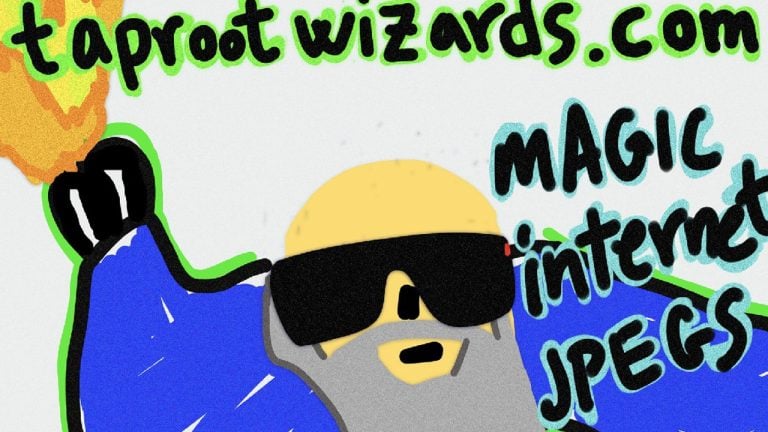 Amid the controversy surrounding the Ordinals project and the debate over what types of data should be stored on the Bitcoin blockchain, the network mined its largest block, nearly 4 MB in size, containing just 63 transactions. One of the transactions was a 3.94 MB Ordinal inscription featuring an image of a wizard, and the […]
Amid the controversy surrounding the Ordinals project and the debate over what types of data should be stored on the Bitcoin blockchain, the network mined its largest block, nearly 4 MB in size, containing just 63 transactions. One of the transactions was a 3.94 MB Ordinal inscription featuring an image of a wizard, and the […]
The community has been divided as to whether the NFT-like "digital artifacts" are the right fit for the Bitcoin ecosystem.
The recent launch of a nonfungible token (NFT) protocol on the Bitcoin mainnet has the crypto community divided over whether it’ll be good for the Bitcoin ecosystem.
The protocol, referred to as “Ordinals,” was created by software engineer Casey Rodarmor, who officially launched the program on the Bitcoin mainnet following a Jan. 21 blog post.
The protocol essentially allows for the Bitcoin version of NFTs — described as “digital artifacts” on the Bitcoin network.
These “digital artificats” can comprise of JPEG-like images, PDFs, video and audio formats.

The introduction of the protocol has the Bitcoin community divided however, with some arguing that it would offer more financial use cases for Bitcoin, while others say its straying away from Satoshi Nakamoto’s vision of Bitcoin as a peer-to-peer cash system.
Bitcoin bull Dan Held was one of those on board with the development, noting that it would drive demand for block space, and thus fees, while bringing more use cases to Bitcoin.
Why it's good:
— Dan Held (@danheld) January 29, 2023
- Brings more financial use cases to Bitcoin
- Drives more demand for block space (aka fees)
My take:
- If you pay a tx fee, it's not spam.
- Bitcoin is permissionless. Can't stop anyone from building it anyway.
Some have pointed out that these NFT-like structures have taken up block space on the Bitcoin network, which could drive up transaction fees.
BREAKING: NFTs ON #BITCOIN
— Bitcoin News
Ordinals are taking up most of the BLOCKSPACE pic.twitter.com/Gxwq4vV8MI(@BitcoinNewsCom) January 29, 2023
Among those include “Bitcoin is Saving” on Twitter, suggesting to its 237,600 followers on Jan. 29 that “privileged wealthy white” people’s desire to put JPEGs as status symbols may exclude marginalized people from participating in the Bitcoin network.
Cryptocurrency researcher Eric Wall disagreed with the opinion that the in-built block size limit will prevent a rise in transaction fees.
Others, such as Blockstream CEO and Bitcoin core developer Adam Back wasn’t happy with meme culture being brought to Bitcoin, who suggested the developers to take the “stupidity” elsewhere:
"you can't stop them" well ofc! bitcoin is designed to be censor resistant. doesn't stop us mildly commenting on the sheer waste and stupidity of an encoding. at least do something efficient. otherwise it's another proof of consumption of block-space thingy.
— Adam Back (@adam3us) January 29, 2023
However, Ethereum bull and host of The Daily Gwei Anthony Sassano took a shot at the Blockstream CEO for wanting “undesirable” transactions to be censored — which many believe goes against the ethos of Bitcoin:
Adam Back and Luke Dashjr are both Bitcoin core developers who have encouraged censorship over the last 48 hours of these "undesirable" transactions
— sassal.eth (@sassal0x) January 30, 2023
So no, it isn't just Bitcoin maximalists - it's actual Bitcoin core developers
Related: Stacks ecosystem becomes #1 Web3 project on Bitcoin
In a blog post, Rodarmor explained that the NFT-like structures are created by inscribing satoshis — the native currency of the Bitcoin network — with arbitrary content.
These inscribed satoshis — which are cryptographically represented by a string of numbers — can then be secured or transferred to other Bitcoin addresses, according to notes in Ordinal’s technical documentation:
“Inscribing is done by sending the satoshi to be inscribed in a transaction that reveals the inscription content on-chain. This content is then inextricably linked to that satoshi, turning it into an immutable digital artifact that can be tracked, transferred, hoarded, bought, sold, lost, and rediscovered.”
The inscriptions take place on the Bitcoin mainnet, no sidechain or separate token is needed, the document states.
Inscriptions are finally ready for Bitcoin mainnet.
— Casey Rodarmor (@rodarmor) January 20, 2023
Inscriptions are like NFTs, but are true digital artifacts: decentralized, immutable, always on-chain, and native to Bitcoin. https://t.co/a4dK7zdITS
It appears that only 277 digital artifacts have been inscripted thus far, according to the Ordinals website.
Interestingly, Rodarmor — admitted in an Aug. 25 interview on Hell Money Podcast that Ordinals was created to bring memes to life on Bitcoin:
“This is 100% a meme-driven development.”